Book of the Day Roundup September 7-11, 2020

Afterlife Crisis
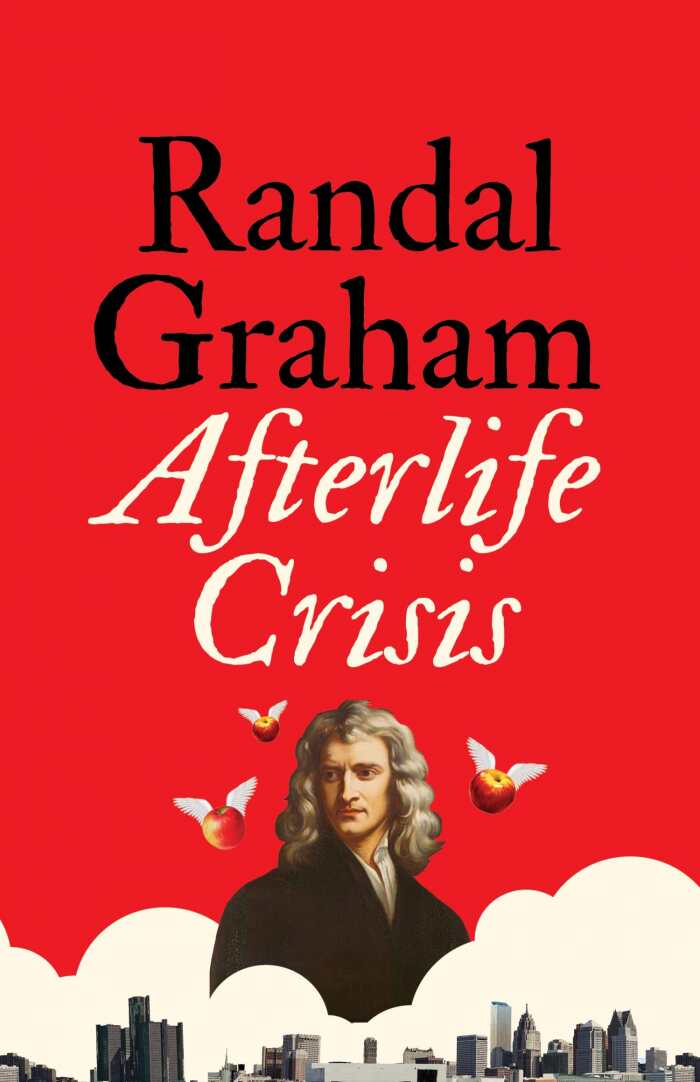
Randal Graham
ECW Press
Softcover $17.95 (432pp)
978-1-77041-470-9
Buy: Local Bookstore (Bookshop), Amazon
In Randal Graham’s raucous, wry, and philosophical sequel to Beforelife, the divine Author’s intrepid hero, Rhinnick Feynman, returns, determined as ever to prove his centrality to the story of all.
Those who meet their ends on Earth are pulled from the river Styx and welcomed into immortality, set in a sprawling metropolis called Detroit. They exist among personalities like church/cult leader Norm Stradamus, a number of Napoleons, hotel bellboy William Shakespeare, a crispy but reconstituted medium, and first resident Abe L.
Also in Detroit: rumors of life before the Styx are considered a delusion. But Feynman, who otherwise could be mistaken for a rather average fellow, recalls his beforelife, an error for which he’s been relegated to hospice care several times before—not that anyone seems to remember that. Charged by Abe with a mission to keep Detroit safe, Feynman carries a loyal hamster in his pocket, refers to lauded genius Isaac Newton as an “arithmetic poop,” and becomes entangled in multiple engagements by accident. Detroit’s history shifts around him, but only he seems to notice. He is slow to see what harm there could be in Isaac toying with reality at a quantum level.
Feynman’s narration—which is indelicate, touched by good-humored egomania, and prone to malapropisms—smothers its entranced, sometimes captive, readership in its loquacious embrace. Beyond his musings lies a rich metaphysical and scientific milieu, in which theories of multiple worlds, the nature of existence, and the impermanence of truth combine. As his quest continues, Feynman encounters decamillennials on ice, complications with television, and a plot to reprogram the past; he comes to the realization that only one empowered by the Author can save Detroit.
Filled with wordplay to die for, Randal Graham’s latest dizzying, irresistible life-after-death satire tackles perennial existential questions with humor and hunger.
MICHELLE ANNE SCHINGLER (June 27, 2020)
Thank You, Miyuki
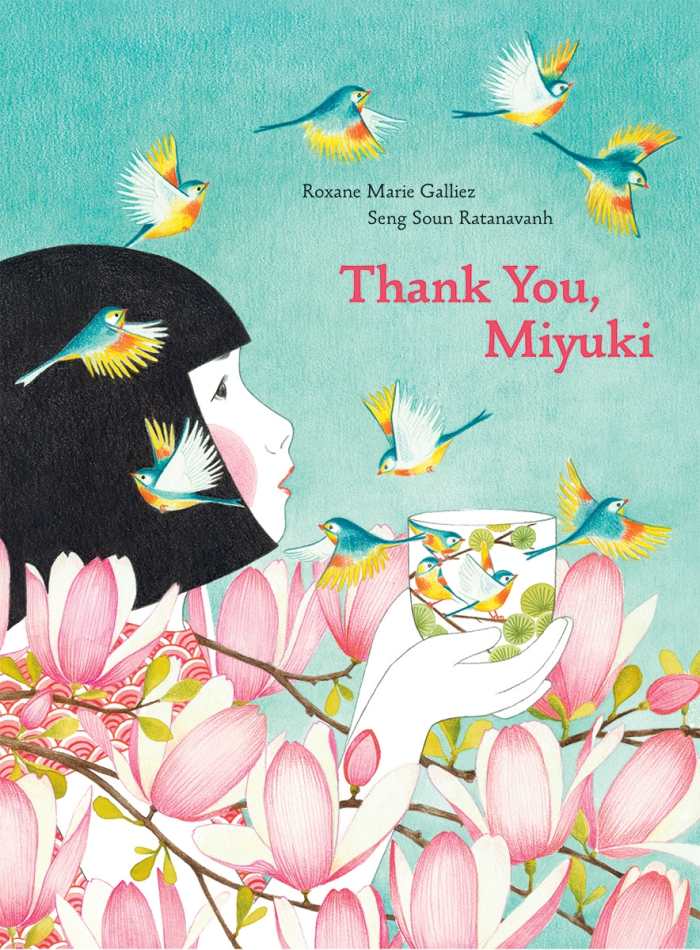
Roxane Marie Galliez
Seng Soun Ratanavanh, illustrator
Princeton Architectural Press
Hardcover $17.95 (32pp)
978-1-61689-901-1
Buy: Local Bookstore (Bookshop), Amazon
Miyuki is full of energy and curiosity when she finds her grandfather meditating in a Lotus blossom. She begs him to teach her to meditate, too, but the patient old man takes her for a walk in the garden instead. The book’s signature, fanciful Japanese-inspired illustrations are full of bright origami paper patterns and whimsical, oversized flowers as the girl and her grandfather explore, observe, and reflect on the natural beauty all around them, perhaps learning about meditation after all.
PALLAS GATES MCCORQUODALE (August 27, 2020)
Blessed Are the Nones
Mixed-Faith Marriage and My Search for Spiritual Community
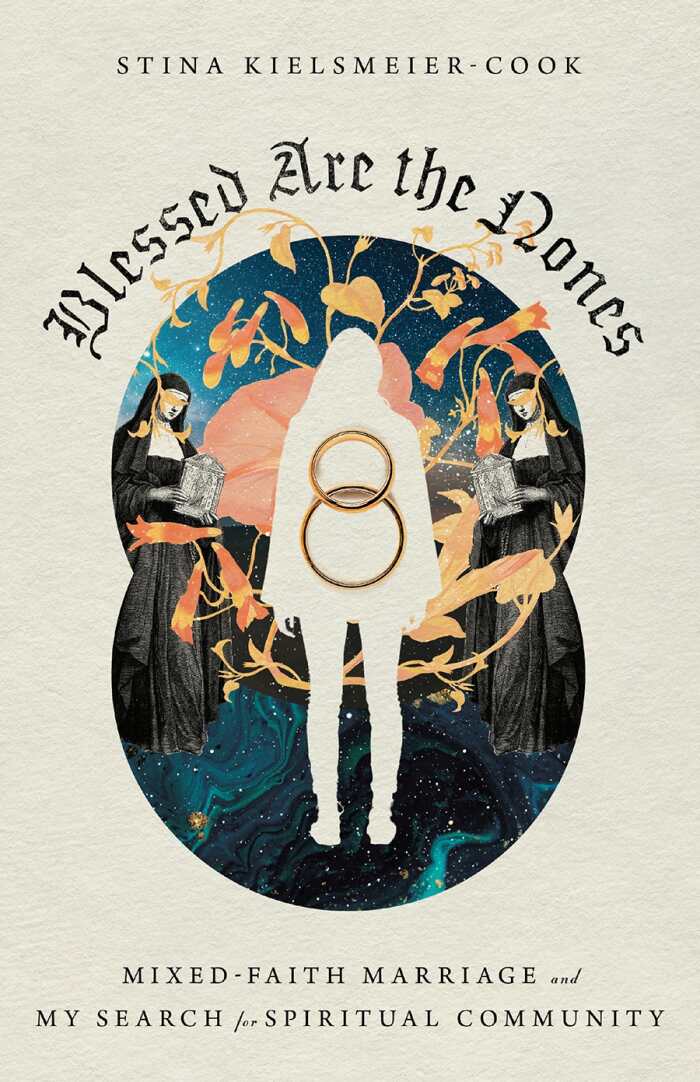
Stina Kielsmeier-Cook
InterVarsity Press
Softcover $16.00 (250pp)
978-0-8308-4827-0
Buy: Local Bookstore (Bookshop), Amazon
In Blessed Are the Nones, a memoir about spiritual changes, personal shifts impact a marriage and a community.
Stina Kielsmeier-Cook met her husband, Josh, in college. They connected over their love of God and their desire to live a life of faith. But three years into their marriage, with a toddler in tow, Josh no longer believed in God. Kielsmeier-Cook was left reeling, wrestling with what his disbelief meant for her marriage and her faith, and acknowledging the changes that her faith had undergone, too.
The story unfolds with elegant narration, raw honesty, and unwavering belief in the goodness of God. While its voice is full of faith and hope, even in painful moments, Kielsmeier-Cook’s struggle also makes room for heartfelt irreverence, as when she remarks that her father-in-law was “trying to talk his son back into eternal life.”
The book tackles issues that have a broad impact on churches and people of faith, as with how Christian communities focus on marriage and married people. After many attempts to connect in faith community, Kielsmeier-Cook found “a place where women don’t rely on their husbands for spiritual identity” through the hospitality of nuns. The story is empathetic to those who’ve experienced a severing in their lives of faith, and includes the gift of phrases like “spiritual singleness” and the simple word “relinquish.”
Kielsmeier-Cook’s search draws upon a number of Christian traditions, including Mennonite, Benedictine, and evangelical ones, and finds her weaving together a fluid faith that is rich with spiritual disciplines like devotional reading, prayer, and spiritual direction, some of which present challenges to mixed-faith families. The stages of grief echo through her story, and the importance of connections across boundaries is clear.
Blessed Are the Nones is a deep account of spiritual searching, and of finding a personal identity in marriage and one’s community.
MELISSA WUSKE (August 27, 2020)
Cloud Hopper
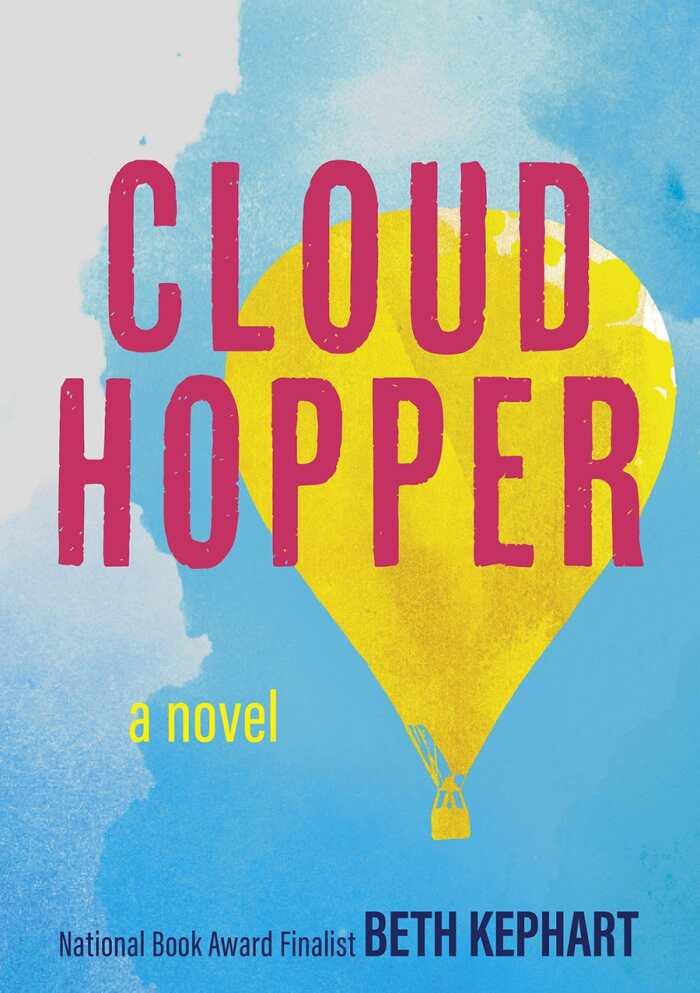
Beth Kephart
Penelope Editions
Hardcover $17.99 (332pp)
978-1-73422-590-7
Buy: Amazon
Look up, up, up to skies filled with endless possibilities in Beth Kephart’s young adult wonder, Cloud Hopper.
Around the municipal airport of Gilbertine live three friends: Sophie is “the tallest, Wyatt’s the thinnest, K’s the strangest: those are facts.” They have heartbreaks in their pasts, but the wonder of flight fills their days.
The three watch as a girl in patent leather pink Doc Martens hops through the clouds, seeming to draw in the dawn. Even before she falls from the sky, requiring their rescue, they feel connected to her. But there are some people who won’t welcome silent strangers in. If Sophie and team hope to help the hopper, they have to find out the truth about her before less sympathetic searchers do.
Kephart’s lines are sensory and musical, leaning into zephyr and tempest winds with trust that the right words have magic. Here, a blueberry is not just a blueberry: it’s a Wyatt blue, capable of intoxicating hungry souls toward compliance. A field is not just a field, but a place coined by ponds, dotted with colors, and alive with possibilities. Of the hopper’s wreckage, Sophie observes: “there is the stuff of her hopping machine, all that has been shattered in the forest. Rusty parts of rusted things. The patchwork balloon with its busted crooked seams.”
These poetic plays ease the audience into the book’s tougher topics, including loss and xenophobia. Sophie and company have a keen sense of what’s right, even when it’s the “right wrong.” They know that immigrants are “hardly different from the rest of us—all of us missing something,” and they work hard to protect their new friend.
Shared secrets have the power to set young dreamers free in the awe-inducing story Cloud Hopper.
MICHELLE ANNE SCHINGLER (August 27, 2020)
Temple Dancer
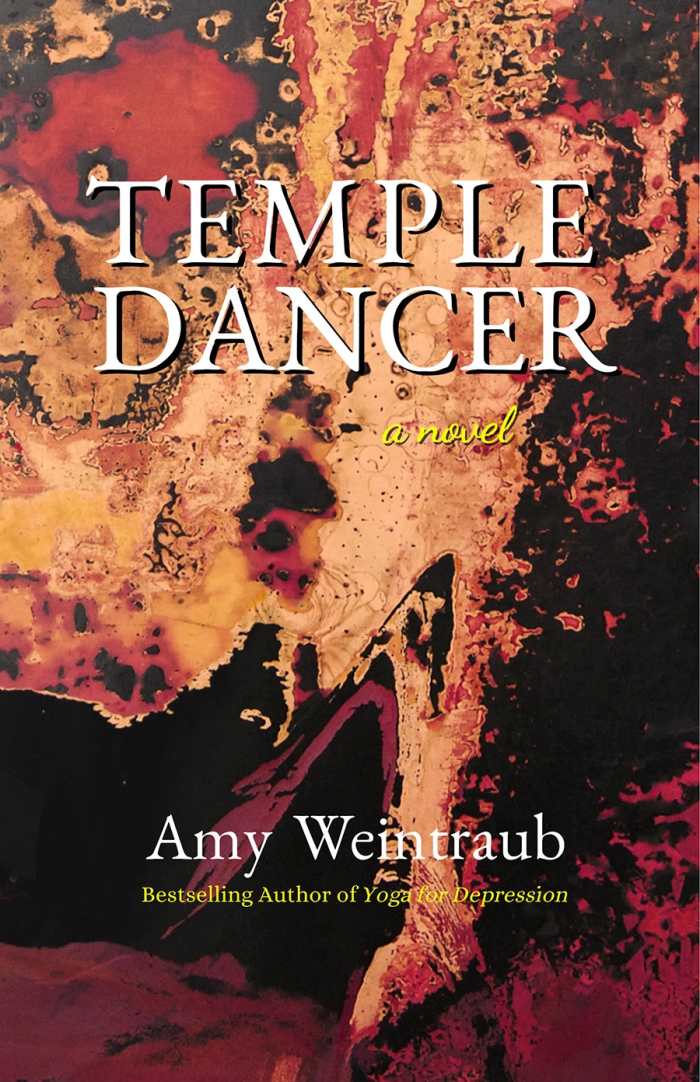
Amy Weintraub
Tumamoc Press
Softcover (286pp)
978-0-9747380-6-2
Buy: Local Bookstore (Bookshop), Amazon
Temple Dancer, Amy Weintraub’s astonishing new novel, evokes the power of a lost spiritual tradition through the story of two disparate women: a disgraced temple dancer from 1930s India, and a contemporary social worker in Massachusetts.
Saraswati and Wendy meet by chance on a crowded train in India. Their serendipitous encounter initiates a spiritual calling for Wendy, who’s depressed and defeated after an ugly divorce and rejection by her former guru. Although she’s found freedom through yoga, she struggles to retain her faith in the Western world.
Saraswati, now in her eighties, was committed in childhood to be a dancer in a temple. The tradition, devadasis, degenerated into cheap sexuality, but Sarawati conveys deep power and peace through “a noble radiance in her face.” She diagnoses Wendy’s shame and offers her a gift that will change her life: a small red book that includes an account of devadasis and its significance as a practice. Through the translation, Wendy revives her own sensuality and holy bond through yogic practice.
Nimble as it bridges fifty years and thousands of miles for two very different women, Temple Dancer is gorgeous and ambitious. Its chapters alternate between India in 1947, the United States in 1997, and India in 1938. Both of the women are fleshed out with rich psychological descriptions that evoke the very different cultures they live in.
Saraswati’s early ecstasy and freedom are in stark contrast to the miserable drudgery that Wendy feels in the “enlightened” West. Wendy, always hungry for spiritual food, finds nourishment in Indian traditions. Although she’s a wealthy, white American, her dependence on these teachings is respectful, not appropriative. Her healing process is painful but necessary, and each small step forward is one in a delicate dance of self-exploration and trust.
Temple Dancer is an unforgettable novel about a woman’s search for peace—and another’s desire for justice.
CLAIRE FOSTER (June 27, 2020)
Barbara Hodge
